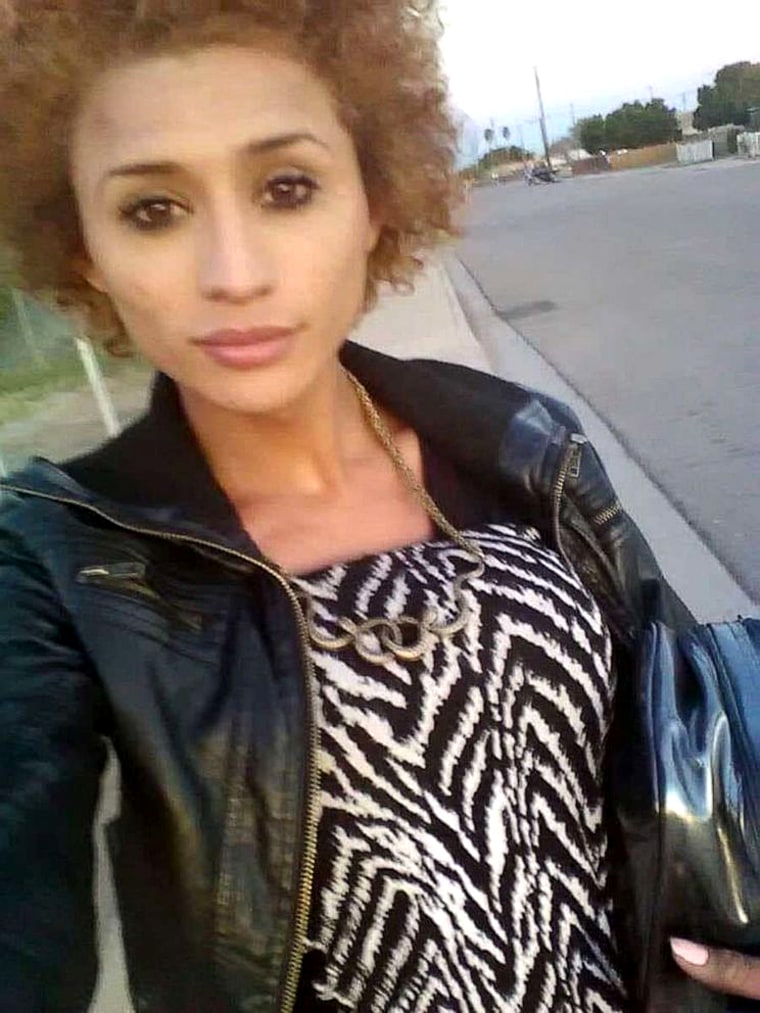‘Brave’ and ‘Outspoken’ Marilyn Cazares among Six Transgender Americans Killed in July
Rosa Diaz and her daughter were riding their motorcycles through rural Brawley, California, this year when they noticed a young person who appeared lost walking down the town’s main street. Diaz, who runs the only LGBTQ resource center for miles, sensed that the person might be in need of support.
She told her daughter to continue ahead, and Diaz made a U-turn.

“I asked her for her name,” and the person shared a male name, Diaz said in an interview. “I said, ‘Is there another name that you prefer?’ And that’s when she told me, ‘Well, I like Marilyn.'”
Diaz asked her whether she needed anything. “I need a new wig,” Diaz recalled Marilyn saying, gesturing to her worn clothes and hairpiece. Diaz gave her a business card, and Marilyn promised to call her after the weekend. Diaz’s team found her a wig, but the call never came.
“I didn’t know about Marilyn again until I was called regarding her death,” Diaz said.
Marilyn Cazares, 22, was found dead last month in an abandoned building in Brawley, about a half-hour north of the Mexican border. It has been a particularly deadly year for trans people — especially trans women of color. In 2019, 27 trans people died because of violence in total. In 2020, the number has already reached 25, according to the Human Rights Campaign.
In July alone, there were six violent deaths of trans and gender-nonconforming people across the U.S. — all but one of them trans Black or Latinx women — making it the deadliest month so far for this vulnerable community.
Related
‘Everybody knew Rita’: Decades later, still no answers in slaying of Black trans woman
In the weeks following her encounter with Cazares in February, Diaz and her small team at the Imperial Valley LGBT Resource Centertried to reach out to Cazares. But they didn’t have her last name or any other information about her. Since her death, family and friends have spoken out about a young woman who lived her truth despite being bullied, ridiculed and violated by members of her community. Her family said they believe her death was a hate crime.
Brawley police are investigating Cazares’ death as a homicide, and Diaz said the community is hungry for answers.
Mindy Garcia, Cazares’ aunt, told NBC affiliate KYMA of Yuma, Arizona, which serves the Brawley area, that her niece was “very brave,” “very outspoken” and “very loved.”
“She was very beautiful,” Garcia added.
An openly hostile environment
Diaz, who grew up in Imperial County, where Brawley is located, came out as lesbian in her 40s. She describes the area as one that at best lacks LGBTQ resources and at worst is an environment that’s openly hostile to lesbian, gay, bisexual, transgender and queer residents.
She started a support group in 2014 after she had nowhere else to turn for a sense of community — and people began turning up in large numbers.
“People who came to this group were telling me, ‘You know, we appreciate what you’re doing, but I need counseling, I need hormone therapy, I need artificial insemination,'” she said. “I wasn’t prepared for all of that.”
But within six months, she had founded the Imperial Valley LGBT Resource Center. She said she has had to “tread lightly” for it to be viewed as a reputable community organization. It’s still the only LGBTQ center in Imperial County, which includes seven cities and about 180,000 residents.
“This is where I began to hear stories,” Diaz said of the center. “Those who were a little flamboyant and very comfortable with themselves … they were considered to be crazy, weird, even evil to some extent.”
She said she’s certain Cazares experienced that kind of treatment in her short lifetime.
“According to what I heard from the family — and because I know my community — Marilyn or anybody that could appear as if they’re one gender but identify as another gender are ridiculed,” she said. “They are seen as people with a mental illness, or, you know, people that are not right.”
Related
El Salvador officers convicted of killing deported trans woman
She said LGBTQ people in Imperial Valley are pushed out of their families, their churches and their communities. She also said Cazares’ death marks the second high-profile homicide of a Latina trans woman from Brawley, after the murder of trans teen Gwen Araujo in 2002.
“The community is angry, of course, because we know that trans women are being killed all over,” Diaz said. “A lot of people believe that these things only happen in big cities, and here, it has hit home.”
Download the NBC News app for breaking news and alerts
Diaz emphasized the need for LGBTQ education in communities like Brawley, where, she said, many residents are unaware of how their LGBTQ neighbors might struggle. Since her death, Cazares has been misgendered in the media — even by members of her family. But Diaz said her goal is to lead with education and information rather than attacks, especially for working-class people who are still learning.
“It’s a sad event,” Diaz said. “But it’s also an opportunity to really honor Marilyn and to let the family know: ‘We remember her like this, because this is who she was.'”